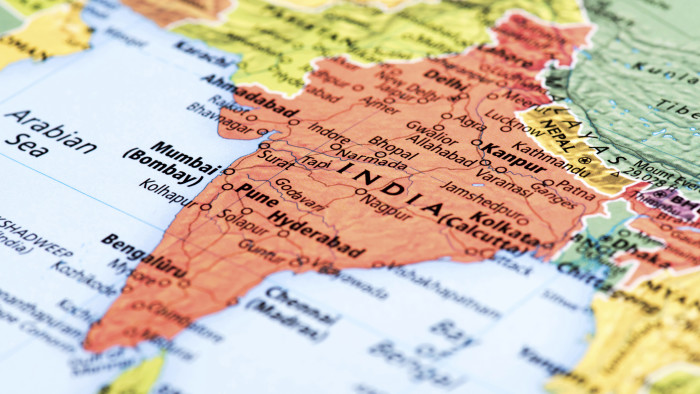‘Truthiness’ takes hold of South Asian history


Roula Khalaf, Editor of the FT, selects her favourite stories in this weekly newsletter.
An outbreak of the affliction Stephen Colbert calls “truthiness” has hit India and its neighbours. The US political satirist coined the word a decade ago to describe the way people ignore the facts and think they know they are right and others are wrong because they feel it in their gut.
The phenomenon would not be so alarming if it were confined to fanatics on the fringes of society. But in South Asia today, governments — including that of India, the world’s largest democracy — have also succumbed to bouts of truthiness.
India’s home ministry has proposed a draconian new security law with seven-year jail terms and a $15m fine for anyone who dares to publish a “wrong” map of the country — one that fails to show disputed territory as part of India, for example — even if they do so outside India and even if the map accurately shows the situation on the ground.
Under the geospatial information regulation bill, mapmakers such as Google would need approval from a “security vetting authority” to guide drivers along India’s notoriously ill-signed roads.
The severest punishments may not make it into law — even now, anyone publishing a map of India “not in conformity” with the official ones can be jailed for six months — but parts of the governing Bharatiya Janata party have not stopped at geography and are having a go at history as well.
In the latest attempt by the Hindu right to rewrite history, the BJP-run government of Rajasthan has deleted crucial references to Jawaharlal Nehru — who led India to independence from Britain and became the first prime minister — from several school textbooks. Nehru, after all, had the temerity to lead the Congress party at the time when a member of the Rashtriya Swayamsevak Sangh, spiritual parent of the BJP, was assassinating Mahatma Gandhi.
There is even a bizarre Hindu nationalist campaign on Twitter to erase 300 years of history by abolishing the Mughals (they gave India the Taj Mahal, the capital Delhi and much else, but the thing is they were Muslim), under the hashtag #RemoveMughalsFromBooks.
Over the border in Bangladesh — a democracy now in name only — the authorities are tampering with a different period of history and have drafted a bill with the Orwellian title of Bangladesh liberation war (denial, distortion, opposition) crime law.
The aim of the law, which bans the criticism of official histories and “denying events”, is to ensure that only the Sheikh Hasina government’s version of what happened survives. It would outlaw debate about the country’s violent separation from Pakistan in 1971, including the vexed issue of the death toll: hundreds of thousands died, but the government insists the correct figure is 3m and woe betide anyone who disagrees.
Nepal too has been infected by truthiness. Kathmandu this month ignored the right to free speech and expelled a Canadian for “spreading unnecessary messages about Nepal”, after he criticised human rights abuses and the arrest of a journalist.
Governments argue they are merely correcting previous biases. In India, BJP supporters complain that academia is dominated by the liberal, Nehruvian left. In Bangladesh, Ms Hasina and the Awami League say the pro-Pakistani Islamist right must not be allowed to justify or minimise its war crimes — and they liken their new history bill to European laws against denial of the Holocaust.
South Asia’s attempts to freeze discussion on history and geography, however, go much further than anything in western Europe and are part of a widening crackdown by elected governments on dissent.
Across the region, officials have sought to restrict the operations of non-government groups and sometimes the media, jingoistically portraying NGO interventions on environmental policy or human rights as foreign-funded conspiracies to weaken the motherland.
In India, at least, it is not too late to stop the slide towards bigotry and intolerance. One can only hope that the country’s heterogeneous political, religious and social traditions and irrepressible enthusiasm for free speech — the most popular television debates are more like shouting matches than discussions — will keep the menace of truthiness at bay.
Comments